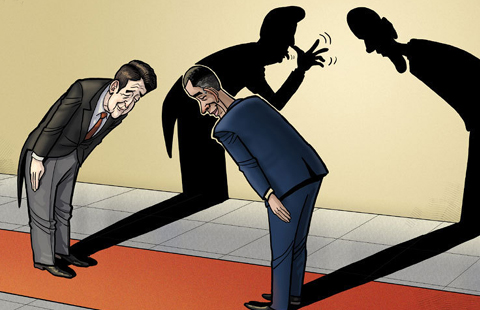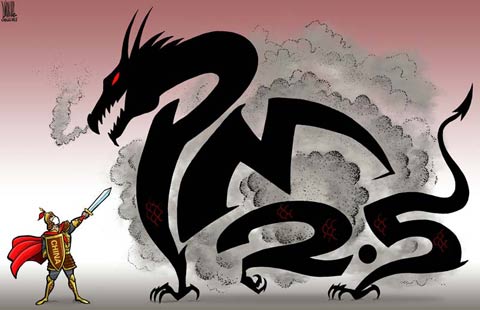Economy brings smile back to Greeks
By Fu Jing (China Daily) Updated: 2014-12-27 08:51During the height of the crisis, Greeks had no choice but to try and earn as much as possible and spend the barest minimum. The same applied to the country's government. What Greece needed the most to tide over the crisis was an intelligent and stable political leadership. It got one but after much political uncertainty. The economic and political uncertainties forced Greeks to make huge sacrifices in terms of their living standards and expenditures, which, in turn, brought the shutters down on about 100,000 businesses.
Nothing could have been more painful for a people who had been used to an average 5 percent annual growth before the fiscal crisis.
Gradually, the government's austerity measures, the bailout packages from the International Monetary Fund and the European Commission, and increasing foreign investment infused new life into the Greek economy. So when Prime Minister Antonis Samaras recently announced that Greece had the highest growth in the eurozone in the third quarter of 2014 (1.7 percent year-on-year) it came as a surprise to very few.
Greece's achievement is all the more remarkable because neighboring Italy has slipped into recession again. Of course, not all the readings for Greece are positive. The jobless rate is still high. Nearly one out of every four Greeks is jobless. The unemployment rate among youths is worse, with one out of every two without a job. Besides, the business confidence has not yet fully recovered.
Despite that, the cradle of Western civilization still has all its geopolitical advantages - as a link between Europe and Asia and Africa, a gateway to Southern Europe, a strong shipping power and a major destination for global tourists - to fully emerge out of the fiscal crisis. But for that, the country needs political stability and visionary leadership.
The author is China Daily's chief correspondent in Brussels. fujing@chinadaily.com.cn











